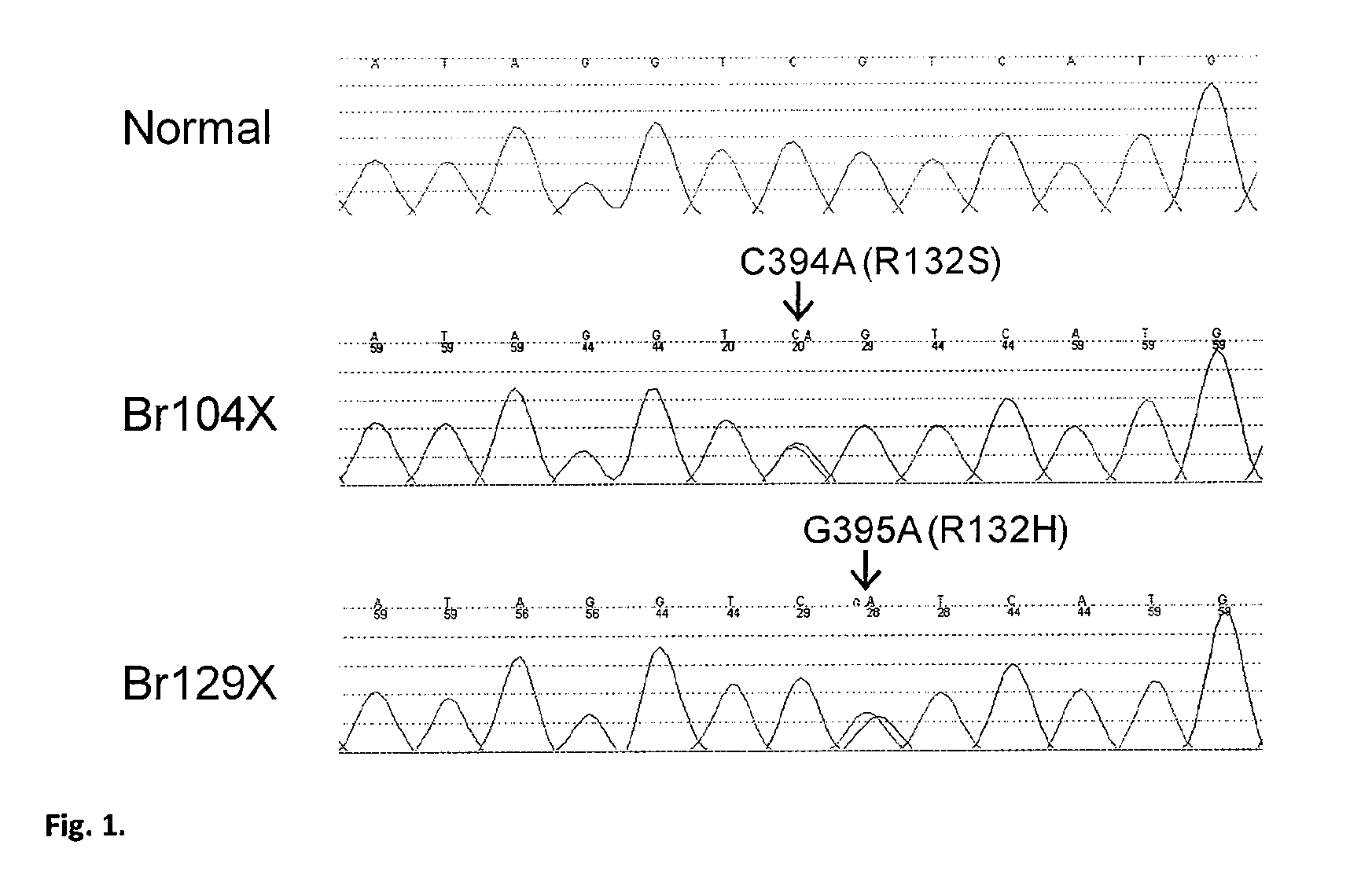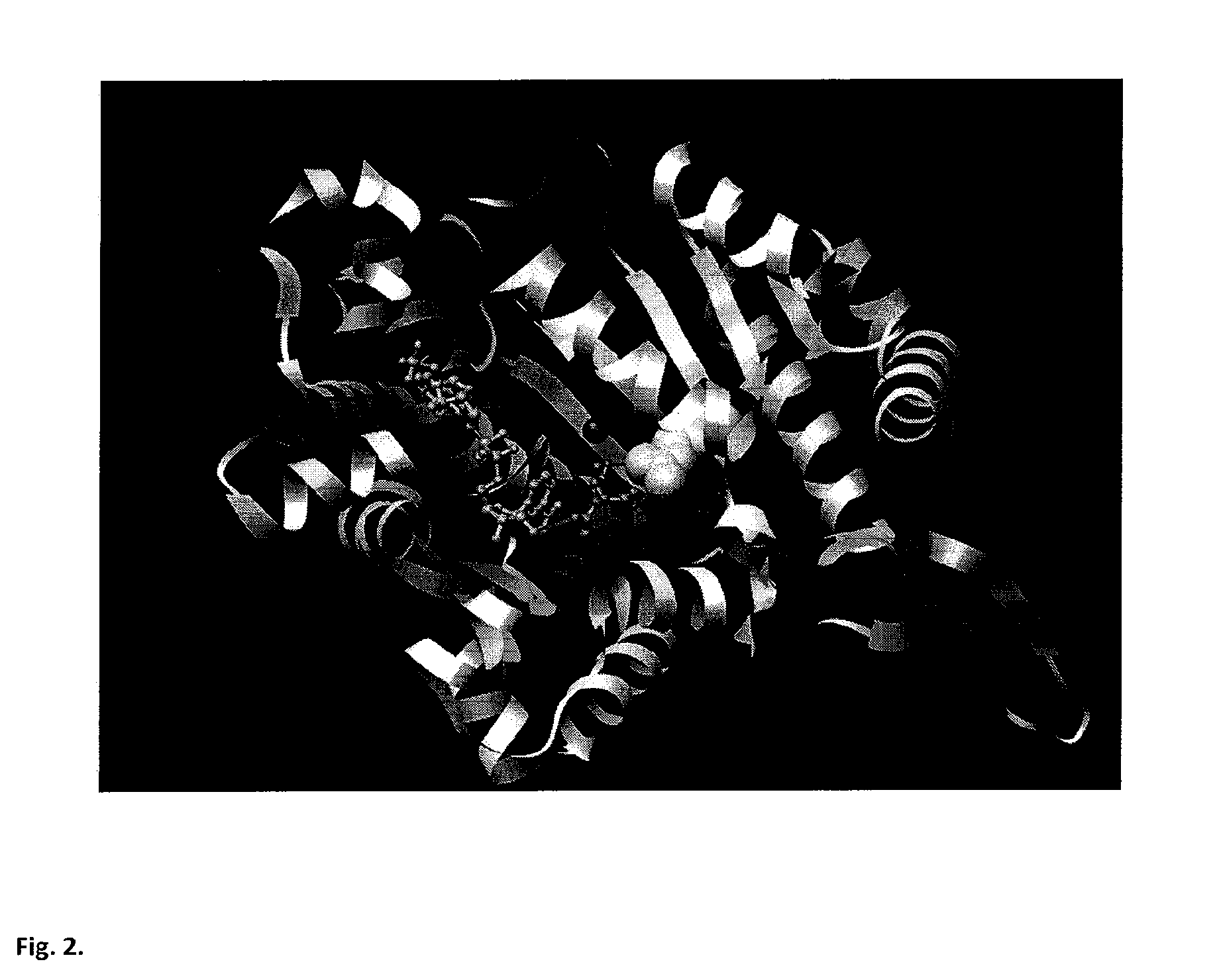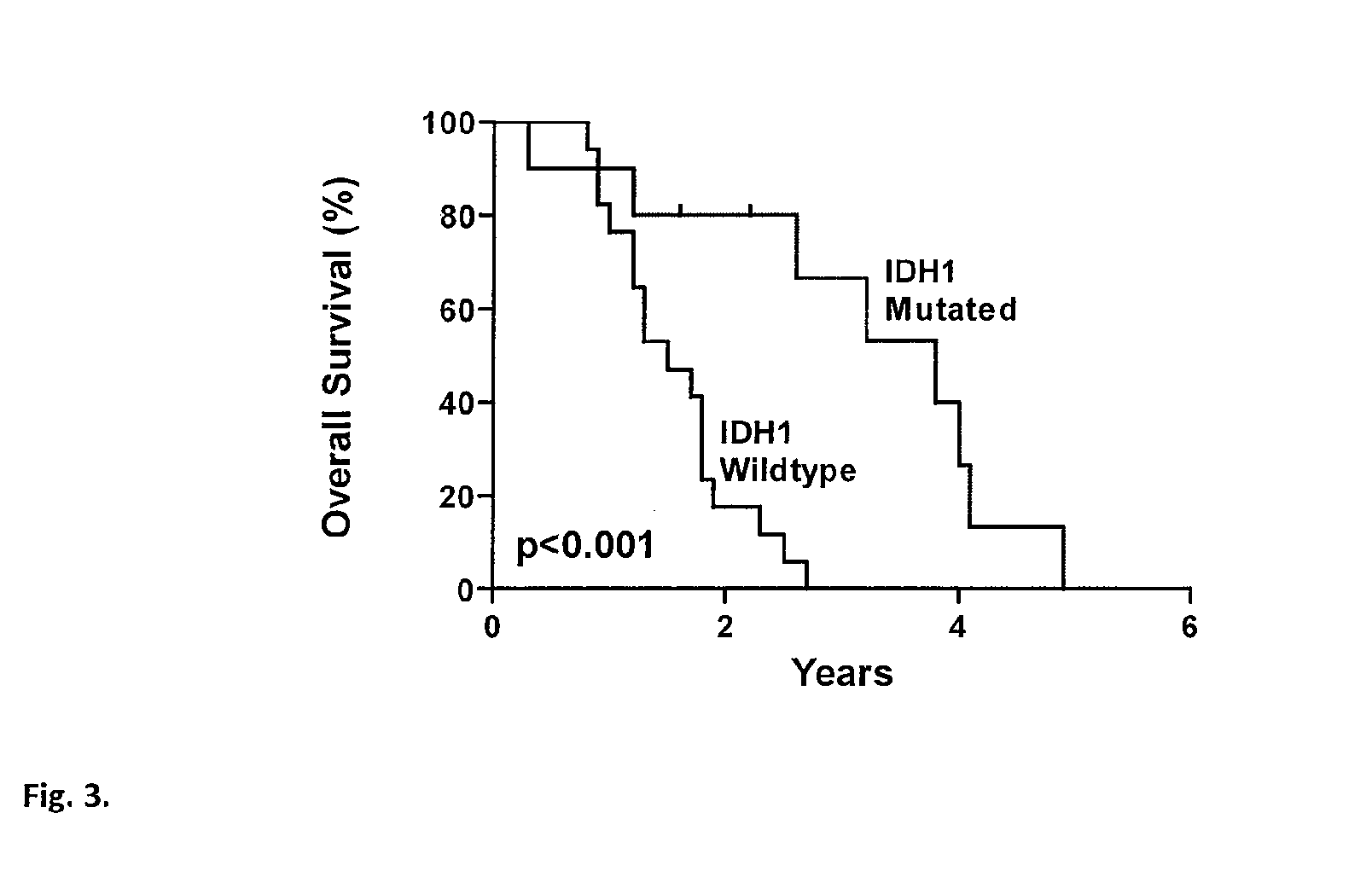Genetic alterations in isocitrate dehydrogenase and other genes in malignant glioma
a gene and gene technology, applied in the field of cancer diagnosis, prognosis, drug screening, and treatment, can solve the problems of carrying a correspondingly poor prognosis, and achieve the effects of increasing, decreasing or stable level of increasing, decreasing or stable level of said somatic mutation over time, and increasing, decreasing or stable level of expression over tim
- Summary
- Abstract
- Description
- Claims
- Application Information
AI Technical Summary
Benefits of technology
Problems solved by technology
Method used
Image
Examples
example 1
Materials and Methods
[0060]DNA was extracted from primary tumor and xenograft samples and patient-matched normal blood lymphocytes obtained from the Tissue Bank at the Preston Robert Tisch Brain Tumor Center at Duke and collaborating centers, as previously described17. All brain tumors analyzed were subjected to consensus review by two neuropathologists. The panel of brain tumors consisted of 21 pilocytic astrocytomas and 2 subependymal giant cell gliomas (WHO Grade I); 31 diffuse astrocytomas, 51 oligodendrogliomas, three oligoastrocytomas, 30 ependymomas, and seven pleomorphic xanthoastrocytomas (WHO Grade II); 43 anaplastic astrocytomas, 36 anaplastic oligodendrogliomas, and seven anaplastic oligoastrocytomas (WHO Grade III); 178 GBMs and 55 medulloblastomas (WHO Grade IV). The GBM samples included 165 primary and 13 secondary cases. Fifteen of the GBMs were from patients 1 year after a prior diagnosis of a lower grade glioma (WHO Grades Sixty-six of the 178 GBMs, but none of the...
example 2
High Frequency Alterations of IDH1 in Young GBM Patients
[0063]The top CAN-gene list included a number of individual genes which had not previously been linked to GBMs. The most frequently mutated of these genes, IDH1, encodes isocitrate dehydrogenase 1, which catalyzes the oxidative carboxylation of isocitrate to α-ketoglutarate, resulting in the production of NADPH. Five isocitrate dehydrogenase genes are encoded in the human genome, with the products of three (IDH3 alpha, IDH3 beta, IDH3 gamma) forming a heterotetramer (α2βγ in the mitochondria and utilizing NAD(+) as an electron acceptor to catalyze the rate-limiting step of the tricarboxylic acid cycle. The fourth isocitrate dehydrogenase (IDH2) is also localized to the mitochondria, but like IDH1, uses NADP(+) as an electron acceptor. The IDH1 product, unlike the rest of the IDH proteins, is contained within the cytoplasm and peroxisomes (41). The protein forms an asymmetric homodimer (42), and is thought to function to regener...
example 3
Glioblastoma Multiforme (GBM) DNA Samples
[0066]Tumor DNA was obtained from GBM xenografts and primary tumors, with matched normal DNA for each case obtained from peripheral blood samples, as previously described (1). All samples were given the histologic diagnosis of glioblastoma multiforme (GBM; World Health Organization Grade IV), except for two Discovery Screen samples who were recorded as “high grade glioma, not otherwise specified”. Samples were classified as recurrent for patients in whom a GBM had been diagnosed at least 3 months prior to the surgery when the study GBM sample was obtained. There were 3 recurrent GBMs in the Discovery Screen, and 15 in the Prevalence Screen. Samples were classified as secondary for patients in whom a lower grade glioma (WHO grade I-III) had been histologically confirmed at least 1 year prior to the surgery when the study GBM sample was obtained. One Discovery Screen sample and 5 Prevalence Screen samples were classified as secondary.
[0067]Pert...
PUM
 Login to View More
Login to View More Abstract
Description
Claims
Application Information
 Login to View More
Login to View More - R&D
- Intellectual Property
- Life Sciences
- Materials
- Tech Scout
- Unparalleled Data Quality
- Higher Quality Content
- 60% Fewer Hallucinations
Browse by: Latest US Patents, China's latest patents, Technical Efficacy Thesaurus, Application Domain, Technology Topic, Popular Technical Reports.
© 2025 PatSnap. All rights reserved.Legal|Privacy policy|Modern Slavery Act Transparency Statement|Sitemap|About US| Contact US: help@patsnap.com



